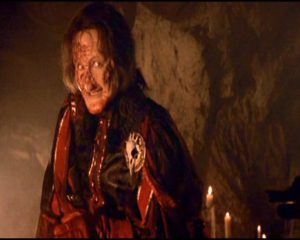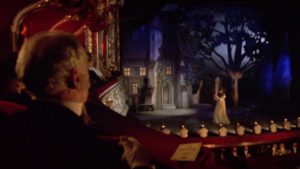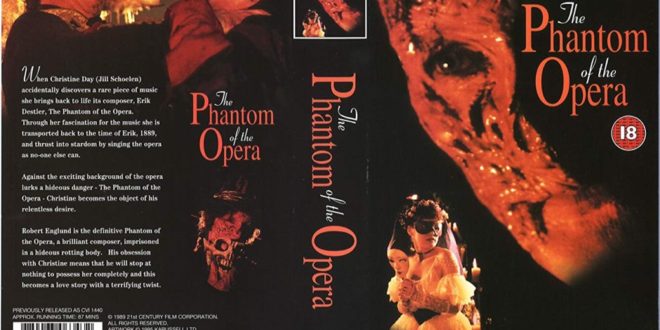We’ve seen The Phantom of the Opera done a million different ways by a million different people. After all, it’s one of the most oft-told tales in the annals of film and stage. This brand has seen thirty national and international adaptations for film alone, not counting the eight television attempts and dozens of theater events in its likeness. But, we’ve never seen it done in such a gory way as we did in the 1989. Thirty years ago on November 3rd, we got one of the darkest adaptations of this script we’d ever seen. Let’s examine how well it holds up after all this time.

The Phantom of the Opera came from a novel written by Gaston Leroux (The Mystery of the Yellow Room 1907), who’s been linked to nearly every screen adaptation of this franchise, and has had dozens of his other French and American novels adapted as well. This version was directed by Dwight Little (Halloween 4: The Return Of Michael Myers 1988 – read our retro review here) and tapped none other than Robert “Freddy Krueger” Englund himself to don the mask. This tale of an affected man using force to grant the wishes of the actress he dotes on was set and ready for a horror take.
But the hype of the horror names pushing this train wasn’t quite enough to keep it on track. While it held more grit and gore than previous adaptations, those moments were predictable. It didn’t quite have the fun of the Nightmare films, or the charisma that we’re used to seeing from Englund. While the acting was solid overall, this larger than life story somehow felt small in this version. The background characters weren’t given much to do, and the delivery of a lot of the scenes felt tedious and lacked passion.

It wasn’t all bad, though. The sets had an incredible gothic and almost Victorian vibe. When Englund did get the chance to kill for his love, it was well executed. The ending sequence they used seemed to break from the traditional versions, giving us a glimpse at what would’ve happened if there were a sequel. There was, in fact, supposed to be a part two that Englund signed on for (and stated that the script for the sequel was far better than the first), but the poor reception for this film ended that prematurely. The Phantom of the Opera certainly had its moments that make you wonder how Andrew Lloyd Webber (the original composer) would’ve reacted. But even three decades later, the attempted tone and style of the “horror Phantom” makes it stand out from all the rest.
 PopHorror Let's Get Scared
PopHorror Let's Get Scared




